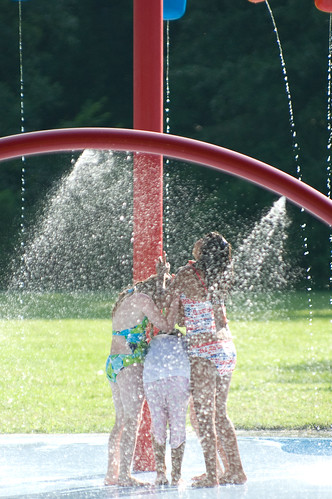
The primary creative task that a photographer engages in as he pursues his art is seeing. This may seem like a prosaic observation worthy of a hearty "Well, duh!", but I assure you that seeing isn't as easy as it sounds. Seeing, you see, isn't just looking. We all do that. And every one of us looks at scenes, every day, day in and day out, that would make beautiful photographs, but we don't see them. People frequently don't want to believe that, but it's true, I promise.
Sometimes we do see them, but we're too busy. We're driving to work, or grilling steaks, or arguing with the spouse, or taking out the trash. As we look around in the course of our chosen task, we may suddenly see a photograph, a scene that strikes us, that makes us think "wow, that would make a wonderful photograph!". But we don't have time, and we let the image slip away. It might have been the greatest image we've ever captured - or maybe not - but there's no way to know if we don't press the shutter button.

But there are other things that can get in our way. Selective blindness, for instance. This is a malady that has afflicted me since I was a child. I look at a scene, and I see it the way I want it to look - I capture the image in my mind, and see it there, clear and bright - but my mind edits out the bits I don't like. The images here are from a family picnic. I knew that the combination of kids playing (that's my daughter with some impromptu friends), water spraying, and the intermittent emergence of the sun from behind the clouds would create some excellent photo opportunities, so I strapped on my 50-135mm lens and started shooting. These two images are a couple of the shots from that group. I shot on the order of 100 pix of the various bits of the tiny water park with its splashing, flashing water, and splashing, laughing kids, and out of that plethora of images I found, perhaps, five or six that are worth anything.
Remember "selective blindness"? Above, do you see the red, arcing tube that's spraying water into the scene? That's exactly what it is. In these images, it's all right, as it adds to the composition and provides more water droplets. But in the vast majority of the images I shot, it's an eyesore, an unwelcome intruder that obscures faces, interrupts space, and breaks up compositions. And often it's out of focus, blurry and unattractive. Why is it there? Because I didn't see it. I looked at it, but I didn't see it, not as a photographer.
A photograph isn't random. A well-crafted photograph doesn't need chance or luck to provide its strength. It requires only seeing. Anyone can "get lucky" - like I said, we all look, all the time. If we shoot enough images, we may get lucky, as I did on these, and get a good image despite our lack of seeing. But if we learn to see, there's no limit to what we can do with our cameras. It's seeing that makes a photographer what he or she may be.
Men of vision are rare. Amazing what you can see when you really look.
ReplyDeleteHeh. You must have actually *read* that stuff...
ReplyDeleteYeah. Ansel Adams said that pre-visualization is the key to all good photographs. But he didn't really address what a "good" photograph is, AFAIK. :D
It's quite interesting that there are times that I see someone holding the camera up, about to take a picture, but the strap or a leaf is just in frame; and I can see this from the outside. It baffles me sometimes that they are looking through the viewfinder and can not see it.
ReplyDeleteHey, Kerry!
ReplyDeleteYeah. I can only speak for myself. It's a blessing and a curse to be able to filter out sensory input you perceive as noise. I can concentrate just fine in the middle of a busy bus station - that's a plus. But if I'm focused on something, I may not hear the bus before it runs me over, diesels, horns, screaming passengers, and all.
So I get an idea of what the shot will look like. Without a camera, I'm looking past the "noise" - the unwanted elements of the shot. With the camera, I shouldn't - but I often end up doing it anyway. *sigh*.